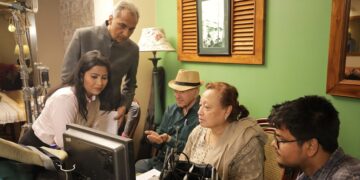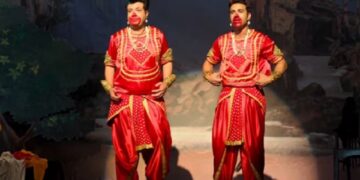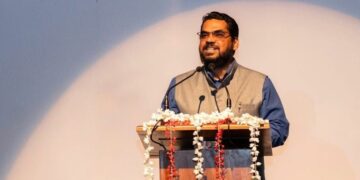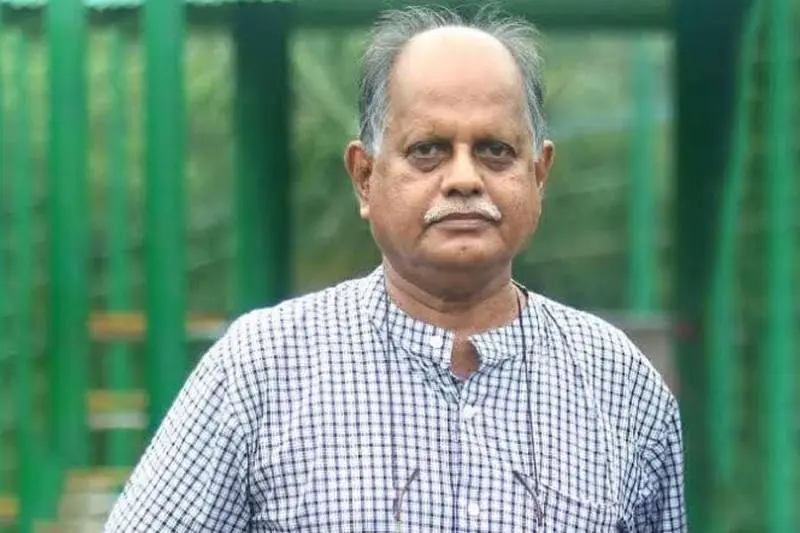The 71-year-old Bibhuranjan Sarkar was the opinion page editor of Ajker Patrika in Dhaka. The paper might not have been among the highest circulating media, but Sarkar was famous for his incisive views. More importantly, he was highly respected in media circles for his honesty and integrity.
On August 21, he left home and never returned. A day later, the journalist’s body was recovered from a river.
Sarkar could not accept the attack on media freedom by the Dr. Muhammad Yunus administration and committed suicide. His suicide note (which he described as his “last column”) proves that the Interim government drove him to his death.
The Yunus administration had problems with everything Sarkar wrote. Other media houses were pressured to deny him space.
His own newspaper was threatened with dire consequences for carrying his columns. In the end, they found fault with his selection of opinion pieces—despite his nearly half century of experience.
On August 14, Sarkar published an opinion piece, “August: A Month of Historic Importance” by Mozharul Islam Babla, editor of Notun Diganta. It challenged some of the misinformation spread in the media.
First, the ousted Prime Minister Sheikh Hasina did not flee the country. The army escorted her out. She reached Delhi in a Bangladesh Air Force plane, accompanied by seven army officials.
Second, it would be unjust to blame Hasina alone for the body bags during the July 2024 protests. The protestors too had their share of killers.
The biggest proof lies in the deaths of law enforcers. Officially, 42 policemen were killed during the protests; unofficially, the toll was over 200.
Roughly 450 out of 600 police stations were attacked, jails were torched, and armouries looted.
The Interim government remains silent about that episode. But it cannot hide a disturbing truth, which all of Bangladesh knows: Islamists took advantage of anti-establishment sentiments against Hasina’s 15-year-old government to seize power in August 2024.
Under external pressure, the Bangladesh Army played a key role in their rise. The UN High Commissioner for Human Rights, Volker Türk, even admitted that they had blackmailed the Bangladesh Army to bring political change.
“We actually gave the warning to the army that if they get involved; it means that they may not be able to be a troop-contributing country anymore. As a result, we saw changes,” Türk told the BBC in March.
But truth itself has been the biggest victim in post-uprising Bangladesh. Yunus’s media managers launched a vicious attack on Sarkar.
His office was ordered to sack him or face cancellation of its registration. The editor complied. Sarkar was sent on unpaid leave—a polite way of saying he was not needed.
Like many elderly men and women, Bibhuranjan had his share of life’s problems. But the humiliation proved too heavy to bear.
“Press freedom shrank after the regime change. All editorial bosses live in fear. It has become common practice to withdraw published news or articles under government threats,” Sarkar wrote in his suicide note.
He stood by the article he had published in Ajker Patrika and pointed directly at Yunus’s press team, headed by Shafiqul Alam, for harassing journalists.
“It’s difficult to survive by telling truth,” he said. The ‘open letter’ went viral on social media.
Sarkar was “lucky” that he received direct threats from the Interim government. In most cases, the Yunus administration leaves the job to its pet mobs.
Silencing free speech has become routine. In the past month alone, at least two district journalists have been killed for exposing extortion rackets.
In Bangladesh, journalists continue to pay the price for reporting the truth, as the world watches in silence..















